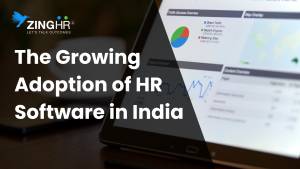The world’s largest microfinance market in India has come to a halt due to the lockdown. It caters to around 120 million families that have no access to financial services.
This sector makes use of the Grameen methodology, residence checks and financial literacy sessions, to provide unsecured loans, within a week of the initial application, to be paid back weekly/fortnightly or monthly as per the client’s preference.
So how does this sector, which caters to the Bottom of the Pyramid clients, always evolve stronger after every crisis?
Speakers

Mr. Alok Biswas
MD and Founder at Jankalyan Financial Services

Ms. Komal Sharma
HR Head at Svamaan Financial Services Pvt Ltd

Mr. Ashwini Kumar
Chief People Officer at Samasta Microfinance Limited

Mr. Vineet Chattree
Director at Svatantra Microfin Pvt Ltd

Mr. Dinesh Saili
Senior Vice President – MFI Operations at Sub-K IMPACT Solutions Ltd

Mr. Vijay Agarwal
Head – Microfinance at Shivalik Mercantile Co-operative Bank Ltd

Mr. Manish Jain
CTO at Bharat Financial Inclusion Limited

Mr. Asutosh Mishra
Deputy HR Manager at Samasta Microfinance Limited

Mr. Prasad Rajappan
CEO & Founder at ZingHR – A Global HR Tech Software Solution in India

Mr. Ravi Kikan
Growth & Marketing Head at ZingHR – A Global HR Tech Software Solution in India
Opening Notes
Mr. Alok Biswas gave his opening statements on the topic. He drew from his own experience where he left Axis Bank in 2010 and started Jagran Financial Services, and there was an economic crisis. People questioned his decision as money had dried up and there were no RBI regulations back then. But this is a different market and it bounced back. But the situation might not be the same during lockdown. There are multiple articles being published which indicate that the market will bounce back; but collection will be a key issue for MFI particularly. Retrenchment might happen as people don’t want to move far from homes.
Work from Home is another challenge for this sector. He mentioned they have currently opened their branches and the collections have started to an extent. Moratorium period is difficult, where RBI has provided another extension, but the sector needs to manage it and be polite.
Demonetization was different as compared to Covid; and it will take time to settle down. Even post Covid, norms like social distancing will still continue.
The biggest challenge is aligning HR processes, employee engagement and motivation; they are in talks with ZingHR for the same.
With the extended moratorium, asset quality might be depleted in the long run.
There will be an increase in demand post Covid, as most people have exhausted their savings and will need to revive their lives.
Mr. Vineet Chattree started his notes by explaining what microfinance is. In his opinion, MFI is providing working capital for life for most of their customers. The sector has around 5.6 CR women borrowers who impact probably 5 times more the number of people. They mainly support the basic economy which is also largely impacted by agriculture.
When the Moratorium extension was announced, the RBI Governor mentioned, among the gloom, the only sector to bring out a little happiness is Agri and Agrilife, where there’s an increase of 3.7%. There has been a great productivity in sowing of kharif crops. In his opinion there will be a fair amount of production in rural and tier 3 cities, but at the same time there will be a fair demand of credit. Because nothing happens without money and it’s an important part to keep the economic engines running.
A trend of reverse migration has been observed, and there might be a little percent of permanency in it. This might imply that our honorable PM’s ‘Atmanirbhar’ initiative is imperative; because people decongesting metros will need to start entrepreneurial initiatives in their local areas. This will lead to demand for infrastructure. Here again credit will need to come from entities which can reach there. This is where microfinance has a pride in their reach.
Microfinance is peoples’ choice because it’s a combination of a great work model and customer experience. The sector gives unsecured loans to people who in his opinion belong to the most resilient part of the economy. Microfinance has the lowest delinquency.
We tend to extrapolate Mumbai as entire India, but India is large. As Mr. Alok mentioned, all the field staff are working, we are operating and have now started with collections.
But yes, the business model will be impacted to an extent. After demonetization, one thing that changed is everyone started dispersing the loan amount in customer’s bank accounts.
So probably after Covid, there might be a realization that digital collection will be the way to go! We might also have to change the approach in customer engagement and provide more awareness.
In his perspective, moratorium has given our customers extra time to repay without an overdue and also a chance at reviving their livelihoods.
Crisis makes everyone innovative, and so does their team. In terms of employee engagement everyone came together with innovations for Business Continuity.
Covid has bought up questions like, ‘Do we centralize or decentralize our metro offices?’ ‘Do we digitize all the processes, like we have digitized our HR processes using ZingHR a Global HR Software Platform?’ And the answer may be YES..
Mr. Ashwini Kumar was in sync with Mr. Alok and Mr. Vineet. Covid has been an opportunity of a kind, where there were certain projects in the pipeline which they had deemed as long term; but due to need of the hour started the implementation and have completed in as fast as 2-3 months.
As an industry, digital collections to an extent have started; they are digitally educating the customers on Moratorium. So the initial fear about Lockdown in April has decreased. Samasta Microfinance re-started their business from 4th May, and educated their people on safety and sanitization. They educated the employees as per the government norms on ways in which we need to communicate with customers and plan the movements.
Fear might lead to economic downturn and overcoming that will be difficult. So although the cases are rising, everyone needs to live with it by maintaining safety and hygiene.
Mr. Ashwini has worked in multiple sectors, and there was never a concept of working from home. But Covid made this change and observed everyone was equally productive working from home as well. Employees were oriented on this transition, and everything has come up well.
From an HR perspective two major challenges were customer and employee engagement. This is where technology played a major role.
Moratorium 2.0 was unexpected, and there was a fear of customer behavior. So strategies had to be revisited.
Demonetization had not negatively impacted microfinance much, but in his opinion the sector is more prone to Covid. If we don’t change our strategies then we will miss the bus.
Employees connect and customer engagement needs to be a priority. ‘ZingHR has been our HRTech partner here. I have used multiple HR software platforms in my past organizations, but honestly ZingHR has given us a lot of flexibility and met our requirements. Major things that I observed are amazing employee connect using helpdesk and a seamless, hassle free payroll software system, attendance and leave management. Geo-fencing has been helping us tremendously in Covid’
ZingHR has played a pivotal role in our digital transition.
Ms. Komal Sharma agreed with most of the points mentioned in the previous notes. MFI as an industry has definitely felt a pinch during Covid, with the operations halted, slowed or suspended during lockdown. As per various experts, the impacts could be short term or long term. Given the working model of the sector where they work with unsecured loans, the major concern has been connecting with the customers. Digitization has been helpful, beginning from disbursements of loans to collections. There have been thoughts of using UPI as well as setting up kiosks.
The guidelines given by RBI helped in restarting with the operations. As Svamaan has branches in rural areas, sanitization, social distancing and hygiene became important. As an organization they educated the entire workforce, and did things at local as well as central level. They ensured sanitizers, masks, gloves were provided at all the branches as well as employees were covered under mediclaim policies.
Work from Home was a new norm for the finance segment, but it has worked well for them. Now the time has come when all organizations will leave the conventional way and start working as a fintech.
Mr. Dinesh Saili mentioned there were two biggest fears, one was fear of the unknown and second was political intervention. We have seen two crises before this and both have taught us lessons. The AP crisis showed the importance of credit bureaus; then demonetization emphasized on the importance of cashless disbursements.
So irrespective of city, state or education everyone is worried about safety and now the strategies will revolve around contactless services while not compromising with the quality.
90-95% of the microfinance staff works in the field, so work from home was because of compulsion. Covid has taught us that work from home can be productive with the right data and technology.
Moratorium 1.0 was like a holiday; whereas in phase 2.0 it was cleared that payments will only be delayed and will be with interest. So that has made life a little easy.
Many people have migrated back to their hometowns with their skills, so they might look at MFIs, NBFCs to start off their livelihood there.
Also he agreed with Ms. Komal’s views, now everyone will start working like fintech, to get the best of both the worlds. Covid has acted as a catalyst for customer engagement and employee connect.
People have also realized the importance of health insurance and savings. Products and services of all organizations will change where now there will be credit plus models.
Mr. Vijay Agarwal felt the major fear of the lockdown was its unknown time period. Second fear was community spread, as urban areas are affected the most.
MFI is all about connectivity, and as mentioned previously by Mr. Dinesh, most of our employees are on field. So the working style needs to be revamped.
Moratorium was mainly announced to review the lower businesses of the people at the bottom of the pyramid, whose main source of income has been hampered. This period has helped in connecting better with the customers.
Covid has emphasized the importance of digital payments.
They have not observed any impact on liquidity as demands are expected to go up post Covid.
According to him, as organizations we also need to look at repeat customers.
Mr. Manish Jain had a different perspective. 20th March 2020 which was the last full business day before lockdown, we disbursed close to 200 CR of loan, and it’s been 6 weeks since our offices have opened and we have not done that amount collectively till now. It was a chaotic situation during lockdown from IT perspective; it was month end, quarter end and financial year end.
In his opinion, today the fear of Covid has been superseded by the instinct of survival for most people including customers and employees. The demand is high, where people in villages need money for reviving their livelihood. Everyone is in need of money.
There are new customers due to reverse migration, which is a complex situation, as you don’t know for long these people will live there. This is an opportunity with risk.
BFIL used to acquire around 5000 customers a day pre Lockdown, which currently has changed to 20 a day.
Moratorium is a chicken and egg situation, where people who have money are opting for it in the midst of all confusion; and people who are badly impacted by Covid we need to help them. It is a difficult situation, as if even 1 or 2 people default payments then the entire village will not get loans.
In this situation we are in need of new products under RBI guidelines, which will help these people in refinance their out standings post moratorium.
They had their field staff work from home, by developing an app, which helped them in understanding the customers situation and communicating accordingly.
The collections are optimistic right now and are expected to improve. An issue with digital collections is, how do the rural customers deposit their money in absence of reasonable smartphones?
Major challenge is whether we should invest in digitization of payment processes or control costs for survival?
Mr. Ravi Kikan introduced Mr. Prasad Rajappan, who suggested to have this Round-Table, as he thinks ‘The voice of the microfinance, which is the base of the lending industry, should be heard and talked about’
Mr. Prasad Rajappan: ZingHR is really excited with the thought process of the microfinance industry towards making India Atma nirbhar. I feel microfinance is the future for India. In my recent interactions with a few NGOs, they mentioned that CSR funds are drying up; and thanks to Mr. Vineet Chattree we were able to get together with other microfinances and raise funds. It’s true when he says; this is one vertical where all the organizations are ready to share the practices.
ZingHR will continue to support you, and don’t look at us only as your HR technology partner but as your business outcomation partner. We are here to partner and learn with you.
Mr. Asutosh Mishra was in sync with Mr. Ashwini’s views, where the primary focus needs to be on customer engagement, to understand how we can better help them in this crisis.
With respect to Work from Home, we organized multiple awareness programs for our employees in terms of health and safety.
Key Pointers from the discussion
Mr. Vineet Chattree:
Engagement is the Key.
Customer Engagement, which doesn’t look forceful, is dominantly digital and helpful in nature.
Engage with your employees, everyone is scared and our employees are working on the field. We need to keep their morale high and ensure their safety.
Vendor engagement for negotiations, as well as ensuring their timely payments.
Mr. Alok Biswas:
We are in the same boat; we need to take care of our customers and liquidity management.
First we need to save our organizations, Cash is the King.
Work from Home is not a luxury for our employees, and we need to ensure their safety.
Ms. Komal Sharma:
Maintain liquidity.
Customer connect to understand their situation and help them.
Ensuring safety of employees, especially the front liners, and also look at employee recognition.
Mr. Ashwini Kumar:
Expedite the turnaround time for projects like digitizing processes, e-collections.
Customer awareness on better utilization of loans.
Continuous learning and development of employees.
Mr. Dinesh Saili:
Financial wellbeing of organization.
Communication and training with employees and; communication to and from customers on financial awareness, moratorium.
Qualification and analyzing of current data, before moving to technology.
Mr. Manish Jain:
Continue dispersing loans and the collection cycle will follow.
We need to adapt quickly to changing regulations.
Invest in cloud technologies and ensure timely vendor payments.
Mr. Vijay Agarwal:
Customer connect should be a priority.
Technology is the way forward.
Liquidity needs to be managed.
Landing approach towards customers need to change.
Mr. Asutosh Mishra:
ZingHR is an amazing HR Tech partner to Samasta Microfinance Limited.
Automation is the key for us.
Customer and employee engagement are extremely essential.
Mr. Prasad Rajappan:
Redesigning of business processes is essential with a focus on business outcomes.
Connect with employees and customers.
For CXOs it’s all about outcomes, which includes topline, EBIDTA margin, people engagement and growth.
So it’s important for everyone to come together and do what’s important for the entire ecosystem.
Connect with Us
India
South East Asia
Middle East
Australia
www.zinghr.com
1800 233 6504
info@zinghr.com




